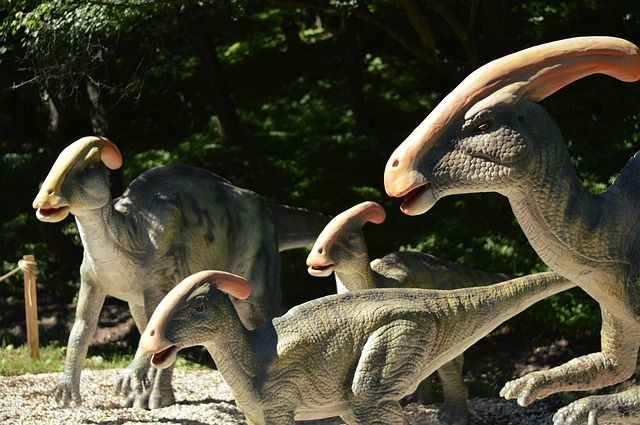Dressed-to-impress Dinosaur Is Never Before Seen In Fossil Record
KEY POINTS
- Ubirajara jubatus was as small as an average chicken
- Scientists described its ribbon-structure as "enigmatic" for its long, flat and stiff appearance
- The Ubirajara jubatus was from Brazil's Crato Formation
The Ubirajara jubatus is the most elaborately structured dinosaur species that science has ever come to know. It was like a peacock but more fascinating because the dinosaur had a ribbon-like bone structure protruding from its shoulders.
Described as "the most elaborately dressed-to-impress dinosaur," the ribbon-like structure of the Ubirajara jubatus was not made of scales or fur, not even feathers. Instead, the ribbons appeared to be keratin cartilages only found in this dinosaur species, the international team of scientists from the University of Portsmouth and the State Museum of Natural History, Karlsruhe, Germany stated.
In a study published in the scientific journal Cretaceous Research, the scientists described the ribbons as "enigmatic" for their long, flat and stiff appearance. The ribbons were also attached to the part of the shoulders where they wouldn't impede the dinosaur species from hunting prey.
The Ubirajara jubatus was only as small as an average chicken but had a mane made up of long fur down its back, according to the scientists. The mane moved like how porcupines' spines do when threatened. Once relaxed, its mane flapped down, giving the Ubirajara jubatus more liberty to move fast. The never-before-seen dinosaur species also had arms and hands covered with fur-like filaments.
The discovery of the new dinosaur species in Brazil is significant because it has provided clues on how peacocks and other birds had gained their abilities to show off, attract the opposite sex or showed dominions over rivals.
In the past, a couple of studies already stated that many dinosaurs had feathers, but most of the fossils were found in China and Germany. This was the first time that a dinosaur fossil with such elaborate features was discovered in South America.
Specifically, the Ubirajara jubatus was from Brazil's Crato Formation, a shallow inland sea laid down about 110 million years ago. The dressed-to-impress dinosaur was also the first non-avian dinosaur found on the ancient supercontinent Gondwana with preserved skin.
The scientists named the dinosaur species after a Tupi Indian name "Ubirajara" which means "lord of the spear" for its ribbon-like structure and "jubatus" from the Latin meaning "maned" or "crested."

© Copyright IBTimes 2025. All rights reserved.





















